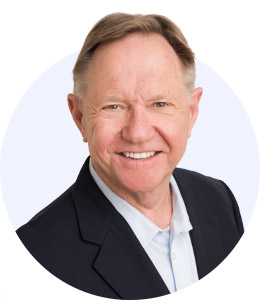As school starts back, we often think about teachers and all the lives they touch.
In a presentation at Spalding University in Louisville, Kentucky, I showed photos of myself in third grade at Congress Park Elementary School in Brookfield, Illinois, and on the Lyons Township High School soccer team in La Grange, Illinois. I pointed out my third-grade teacher, Miss James, and my soccer coach, Coach King, and shared the impact they and other teachers and staff members have had on my life.
I said that in many jobs, the feedback on the positive difference made is immediate. We thank those who provide medical assistance or show us where something is at the store or help us buy or sell a house. Teachers often don’t hear about the impact they made until 30 years later. But what a significant impact teachers have! The same is true for many. My message is, don’t underestimate the difference you have made and/or are making.
This got me thinking about coaching trees. In sports, the best head coaches are known for developing great assistants who are then recruited to be head coaches for other teams. You will see diagrams that show a head coach and all the others they have impacted. It will also show the former assistants who are now head coaches, as well as their former assistants who are leading other teams. It’s a good way to show an impressive legacy.
The concept of coaching trees can apply to other industries. When a physician has trained with a well-known doctor or at a place with a great reputation, they bring that legacy or “halo” with them. When I was working for Mercy Hospital in Janesville, Wisconsin, a new physician who had trained at the Mayo Clinic joined the medical staff. We promoted the physician as Mayo-trained. The reason why was Mayo’s halo.
Certain methods or approaches leave legacies. Lean comes to mind. It is a methodology for improving a process to achieve a better outcome. In my own work, people will say they use Studer tools or techniques. It’s a great feeling to receive a note from someone sharing that they consider me a mentor. I am passing along things I have learned. As they teach us in recovery, passing along learnings is one of the best things we can do.
The same is true in the context of building vibrant communities. In Pensacola, Florida, we learned a great deal from visiting other communities and bringing in community-building experts via an educational series called CivicCon (short for “civic conversations”).
In my work, I share that we are all chief development officers. This means that each person has the opportunity and responsibility to help those they work with and lead to maximize their individual potential. While departments like human resources or organizational development are helpful, the person to whom someone reports holds the key to their development.
I encourage CEOs to ask each of their direct reports to share what skill-building is taking place with each of their direct reports (and to ask themselves the same question). It is not that unusual for there to be more vagueness than expected.
Mentorship comes more naturally to some than to others. In Pensacola, the Studer Community Institute provides a program called Venture Mentoring Service or VMS. It is a program that mentors small business owners and others who lead organizations. It includes education on how to be a good mentor. I recommend a book called High-Impact Mentoring: A Practical Guide to Creating Value in Other People’s Lives by my friend Bert Thornton along with Dr. Sherry Hartnett.
My daughter-in-law Donnelle Studer is a 25-plus-year nurse. She is a preceptor. A preceptor’s role is to be a resource for new nurses or experienced nurses who are new to the organization. I often share that she is impacting so many patients due to her helping nurses build their skill sets. Yes, we all have coaching trees. We all leave our fingerprints on so many lives.
A few suggestions:
- Write a note to someone who has positively impacted your career. I received an email from Kathy Neuner. She is a healthcare executive. In her note, she shared that she first heard me speak in 1998 at a nursing conference. She then traveled to Pensacola, where I was president of Baptist Hospital. She took what she learned to Clark Memorial Hospital in Kentucky. She continues to read these articles and listen to my podcast. How neat is that? I have tears as I type this.
- Do not underestimate the impact you have had and/or are having on those you encounter. You have more influence than you may realize. It is often hard for someone to ask for help. Most people want to be better. Ask those you lead how you can be helpful to them. What barriers are they facing? What concerns do they have that you can help with?
- Provide opportunities for people to build their skill set. Recent research I read showed that many leaders struggle to delegate for a variety of reasons. Some people feel it is easier to do things themselves. Others may fear they lose power if someone else does a task they feel is in their purview. Some feel others already have enough on their plate and cannot ask them to do more. Give people the opportunity to take on tasks and show what they can do.
I often remind leaders that the legacy we leave behind is those we teach. There are times when a person shares their gratitude for what they learned. There are times when a person finds out their impact years down the road. And there are times when a person will never know the impact they had.
Think about those people who make a difference but don’t receive immediate feedback. Again, teachers are a good example. When students want to say thank you, teachers may be hard to locate or may no longer be alive. Take time this week to say thank you to teachers. And reach out to others who have impacted you and let them know what they mean to you.
You are part of a coaching tree. You also have a coaching tree of those you impact. Thank you.







